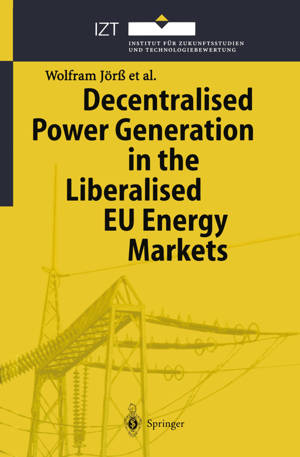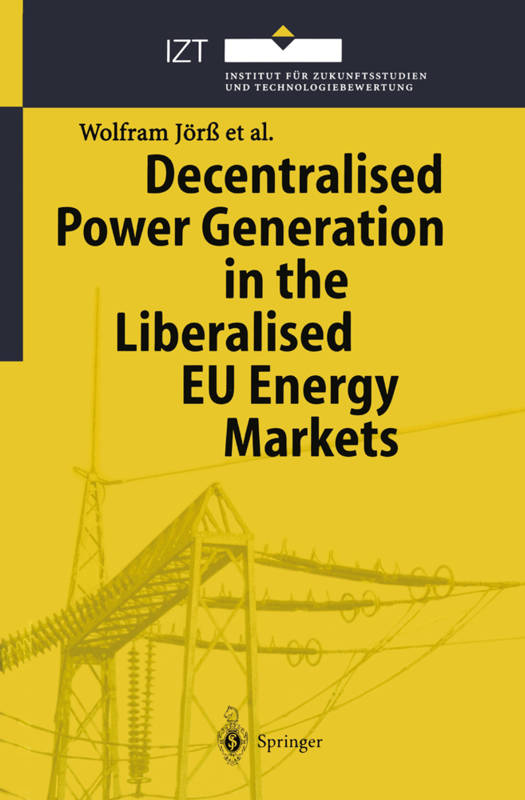
- Afhalen na 1 uur in een winkel met voorraad
- Gratis thuislevering in België vanaf € 30
- Ruim aanbod met 7 miljoen producten
- Afhalen na 1 uur in een winkel met voorraad
- Gratis thuislevering in België vanaf € 30
- Ruim aanbod met 7 miljoen producten
Zoeken
Decentralised Power Generation in the Liberalised EU Energy Markets
Results from the Decent Research Project
Wolfram Jörß, Birte Holst Joergensen, Peter Loeffler, Poul Erik Morthorst, Martine Uyterlinde, Emiel Van Sambeek, Timon Wehnert
Paperback | Engels
€ 105,45
+ 210 punten
Uitvoering
Omschrijving
In the coming 20 years, decentralised generation (DG) is expected to play an in- creasingly important role in the European electricity infrastructure and market. DG can be defined as small-scale generation connected to the distribution network or on the customer side of the meter. The application of DG is often highly loca- tion specific and depends on such diverse issues as the possibilities of technical implementation, resource availability, environmental aspects, social embedding of the project, regulation and market conditions. These factors vary considerably among technologies and among the ED Member States. The DECENT study (Decentralised Generation Technologies -Potentials, Suc- cess Factors and Impacts in the Liberalised ED Energy Markets (Joerss et al. 2002 was designed and carried out to identify the main barriers and success fac- tors to the implementation of DG projects within the ED and to formulate a num- ber of related recommendations to ED and Member State policy makers to en- hance the feasibility of DG projects within the internal energy market.
Specificaties
Betrokkenen
- Auteur(s):
- Uitgeverij:
Inhoud
- Aantal bladzijden:
- 259
- Taal:
- Engels
Eigenschappen
- Productcode (EAN):
- 9783642072697
- Verschijningsdatum:
- 30/11/2010
- Uitvoering:
- Paperback
- Formaat:
- Trade paperback (VS)
- Afmetingen:
- 156 mm x 234 mm
- Gewicht:
- 394 g

Alleen bij Standaard Boekhandel
+ 210 punten op je klantenkaart van Standaard Boekhandel
Beoordelingen
We publiceren alleen reviews die voldoen aan de voorwaarden voor reviews. Bekijk onze voorwaarden voor reviews.











